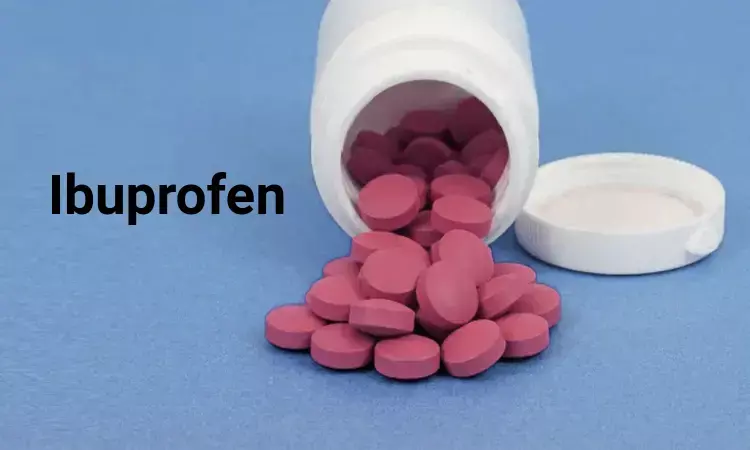- Home
- Medical news & Guidelines
- Anesthesiology
- Cardiology and CTVS
- Critical Care
- Dentistry
- Dermatology
- Diabetes and Endocrinology
- ENT
- Gastroenterology
- Medicine
- Nephrology
- Neurology
- Obstretics-Gynaecology
- Oncology
- Ophthalmology
- Orthopaedics
- Pediatrics-Neonatology
- Psychiatry
- Pulmonology
- Radiology
- Surgery
- Urology
- Laboratory Medicine
- Diet
- Nursing
- Paramedical
- Physiotherapy
- Health news
- Fact Check
- Bone Health Fact Check
- Brain Health Fact Check
- Cancer Related Fact Check
- Child Care Fact Check
- Dental and oral health fact check
- Diabetes and metabolic health fact check
- Diet and Nutrition Fact Check
- Eye and ENT Care Fact Check
- Fitness fact check
- Gut health fact check
- Heart health fact check
- Kidney health fact check
- Medical education fact check
- Men's health fact check
- Respiratory fact check
- Skin and hair care fact check
- Vaccine and Immunization fact check
- Women's health fact check
- AYUSH
- State News
- Andaman and Nicobar Islands
- Andhra Pradesh
- Arunachal Pradesh
- Assam
- Bihar
- Chandigarh
- Chattisgarh
- Dadra and Nagar Haveli
- Daman and Diu
- Delhi
- Goa
- Gujarat
- Haryana
- Himachal Pradesh
- Jammu & Kashmir
- Jharkhand
- Karnataka
- Kerala
- Ladakh
- Lakshadweep
- Madhya Pradesh
- Maharashtra
- Manipur
- Meghalaya
- Mizoram
- Nagaland
- Odisha
- Puducherry
- Punjab
- Rajasthan
- Sikkim
- Tamil Nadu
- Telangana
- Tripura
- Uttar Pradesh
- Uttrakhand
- West Bengal
- Medical Education
- Industry
No evidence that ibuprofen worsens Covid 19: EMA

The European Medicine Agency (EMA) has issued a statement on the use of non-steroidal anti-inflammatory drugs (NSAIDs) for COVID-19.
EMA says it is aware of reports, especially on social media, which raise questions about whether non-steroidal anti-inflammatory medicines (NSAIDs) such as ibuprofen could worsen coronavirus disease (COVID-19).
There is currently no scientific evidence establishing a link between ibuprofen and worsening of COVID‑19. EMA is monitoring the situation closely and will review any new information that becomes available on this issue in the context of the pandemic.
In May 2019, EMA's safety committee (PRAC) started a review of the non-steroidal anti-inflammatory medicines ibuprofen and ketoprofen following a survey by the French National Agency for Medicines and Health Products Safety (ANSM) which suggested that infection due to chickenpox (varicella) and some bacterial infections could be made worse by these medicines. The product information of many NSAIDs already contains warnings that their anti-inflammatory effects may hide the symptoms of a worsening infection. The PRAC is reviewing all available data to see if any additional measure is required.
When starting treatment for fever or pain in COVID-19, patients and healthcare professionals should consider all available treatment options including paracetamol and NSAIDs. Each medicine has its own benefits and risks which are reflected in its product information and which should be considered along with EU national treatment guidelines, most of which recommend paracetamol as a first treatment option for fever or pain.
In line with EU national treatment guidelines, patients and healthcare professionals can continue using NSAIDs (like ibuprofen) as per the approved product information. Current advice includes that these medicines are used at the lowest effective dose for the shortest possible period.
Patients who have any questions should speak to their doctor or pharmacist. There is currently no reason for patients taking ibuprofen to interrupt their treatment, based on the above. This is particularly important for patients taking ibuprofen or other NSAID medicines for chronic diseases.
Further to the ongoing PRAC safety review on ibuprofen and ketoprofen, EMA highlights the need for epidemiological studies to be conducted in a timely manner to provide adequate evidence on any effect of NSAIDs on disease prognosis for COVID-19. The Agency is reaching out to its stakeholders and is ready to actively support such studies, which could be useful in guiding any future treatment recommendations.
The EMA says, when starting treatment for fever or pain in COVID-19, consider all available treatment options including paracetamol and NSAIDs. Each medicine has its own benefits and risks which are reflected in the product information and which should be considered along with national treatment guidelines, most of which recommend paracetamol for the first-line treatment of fever or pain.
The agency is calling on stakeholders to conduct epidemiological studies to examine this issue in more people.
3: Good
4: Very good
5: Excellent
EMA will provide further information as necessary and once the PRAC review is concluded.
For further reference log on to:
European Medicines Agency. EMA gives advice on the use of non-steroidal anti-inflammatories for COVID-19 . EMA/136850/2020. 18 March 2020.
Dr Kamal Kant Kohli-MBBS, DTCD- a chest specialist with more than 30 years of practice and a flair for writing clinical articles, Dr Kamal Kant Kohli joined Medical Dialogues as a Chief Editor of Medical News. Besides writing articles, as an editor, he proofreads and verifies all the medical content published on Medical Dialogues including those coming from journals, studies,medical conferences,guidelines etc. Email: drkohli@medicaldialogues.in. Contact no. 011-43720751


